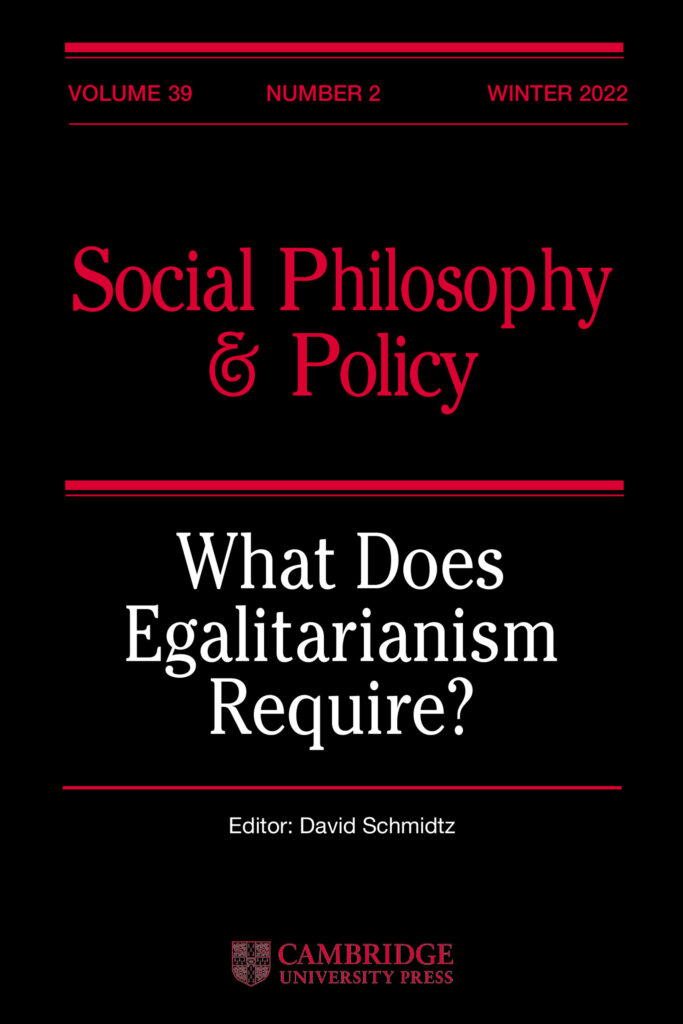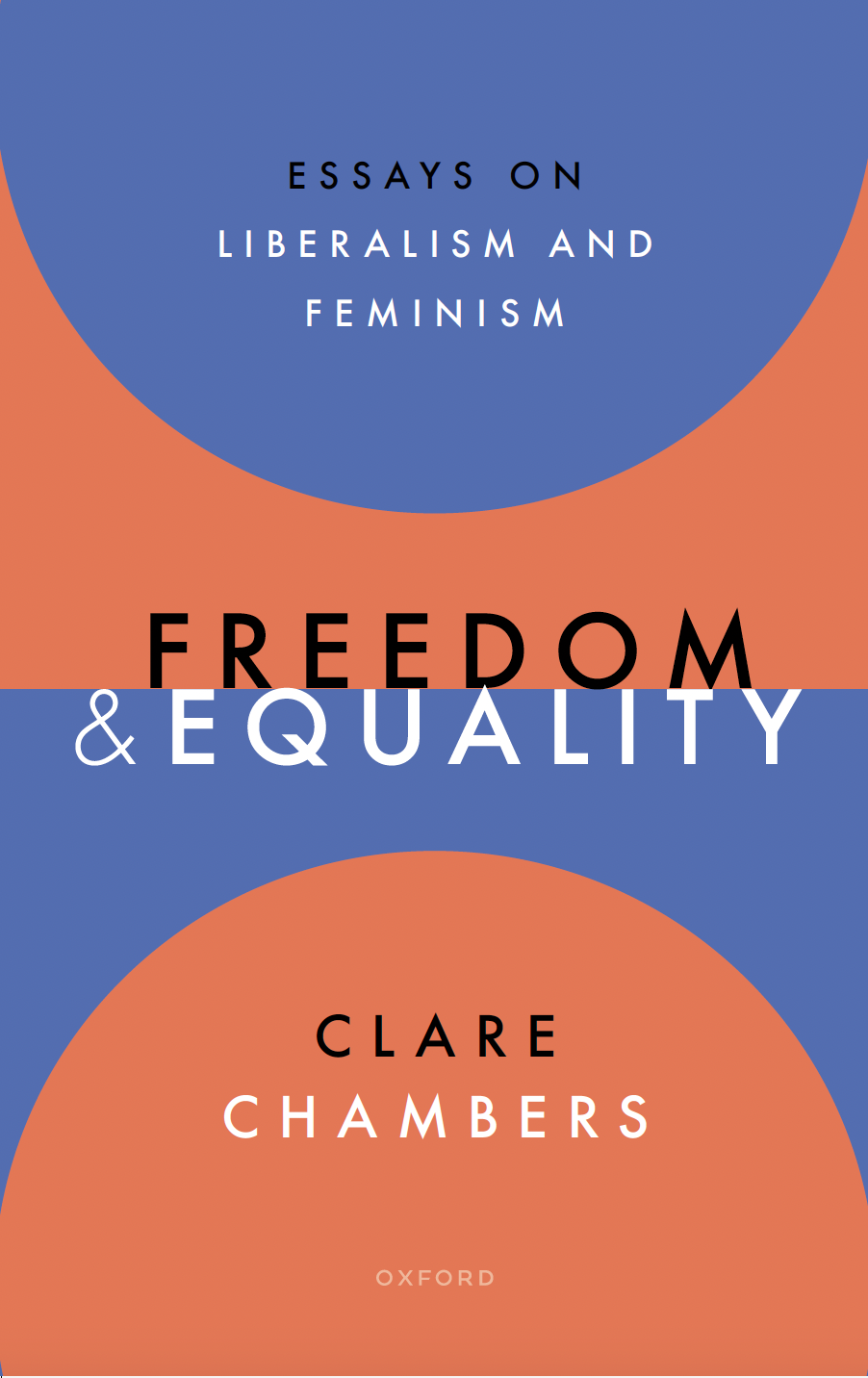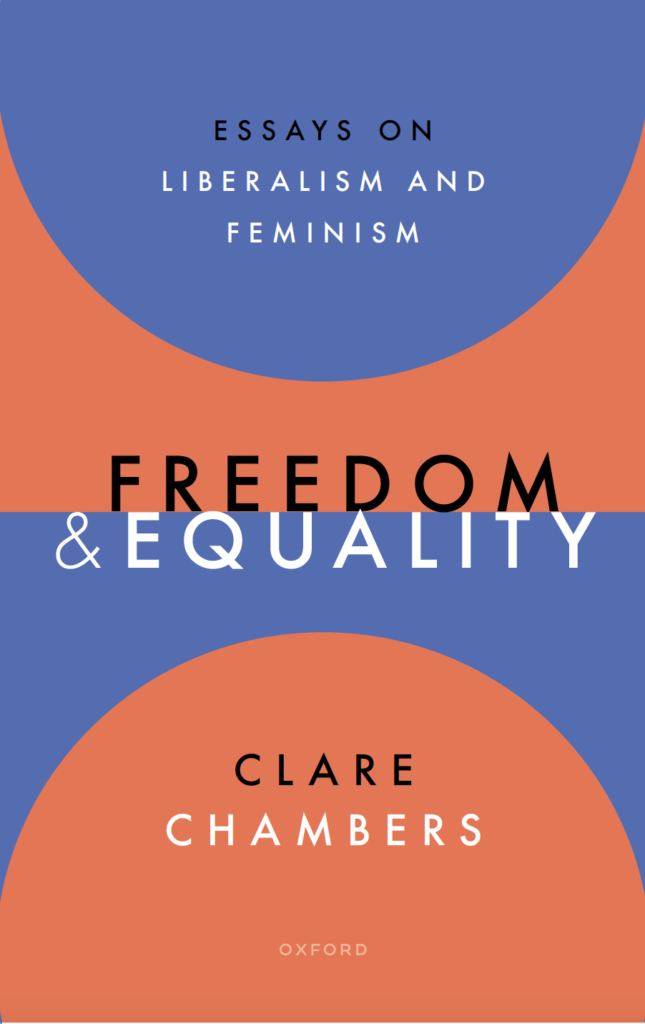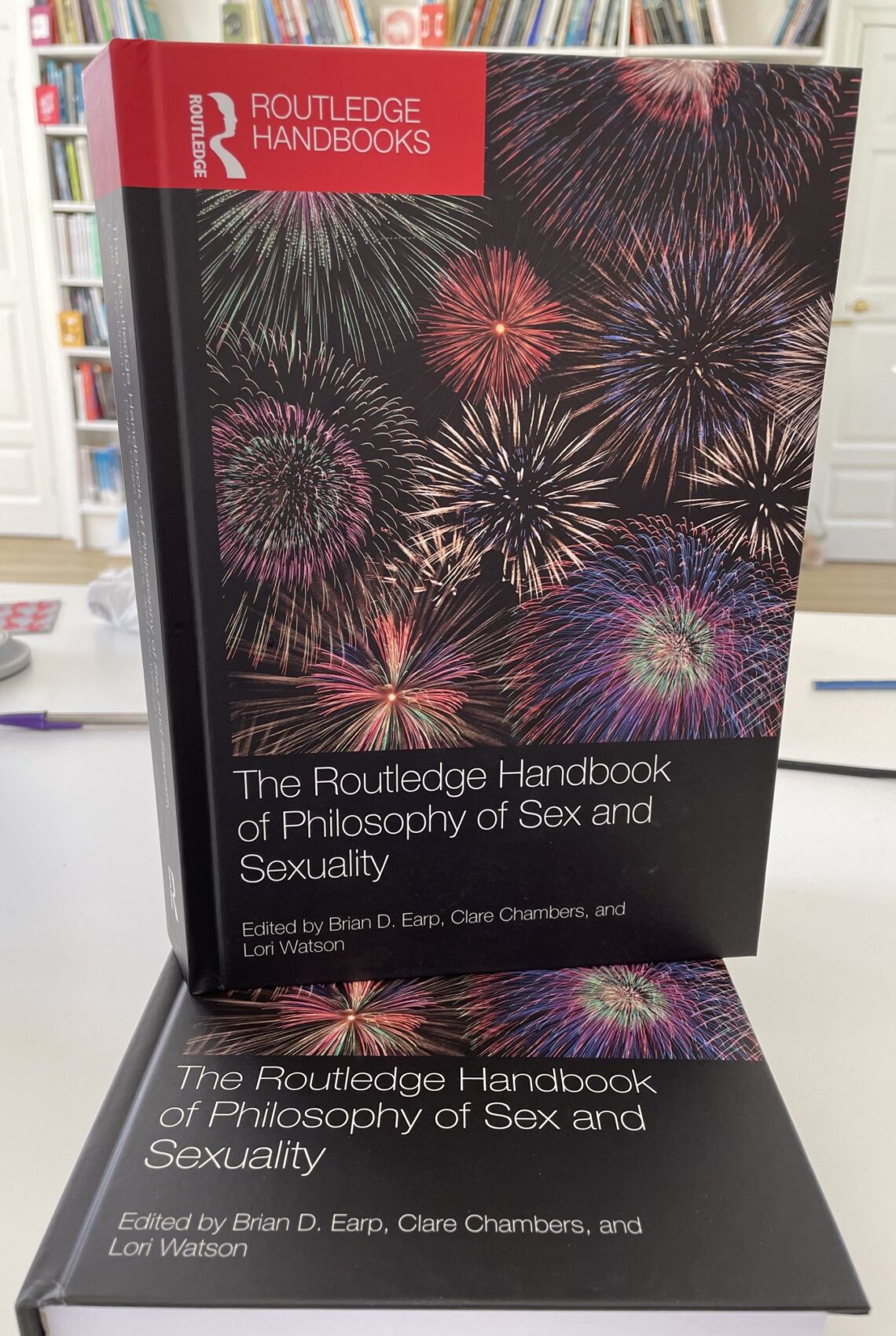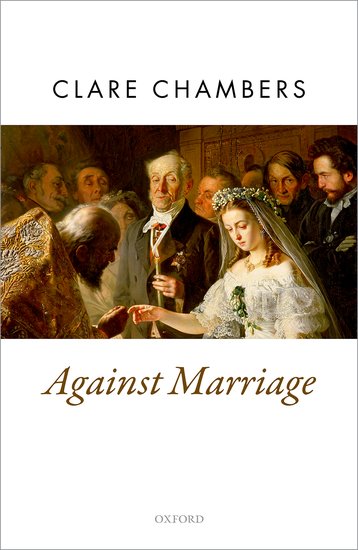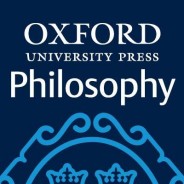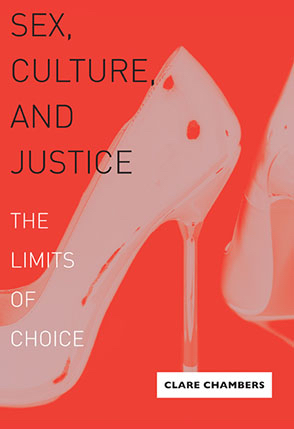all posts on liberalism
- all posts on feminism, all posts on liberalism, all posts on social construction, feminism, liberalism
“Making Inequality Visible Without Making it Worse”
“Making Inequality Visible Without Making it Worse” is published in Social Philosophy & Policy (Vol. 39 No. 2, 2022). You can read it here.
Abstract: Egalitarian commitments have often been thought compatible with practices that are later identified as inegalitarian. Thus, a fundamental task of egalitarianism is to make inequality visible. Making inequality visible requires including marginalized people, questioning what equality requires, and naming inequality. At the same time, egalitarianism is a movement for change: egalitarians want to make things more equal. When egalitarians seek change at the institutional level, the two egalitarian tasks are complementary: making inequality visible is part of campaigning to make things better. However, at the level of social norms there is a dilemma because making inequality visible can make things worse. Making inequality visible can reinforce unequal norms and fail to address intersectionality. The case of gendered pronouns illustrates this dilemma.
- all posts on culture and religion, all posts on feminism, all posts on liberalism, all posts on marriage, all posts on social construction, Freedom & Equality
Freedom & Equality: Essays on Liberalism and Feminism
Should the state recognise gender? Can a liberal state discourage traditional family structures? Is women’s sport compatible with equality of opportunity? Should feminists defend women’s freedom to choose cosmetic surgery? Is genital cutting always wrong, or is it only wrong for girls?
Freedom & Equality: Essays on Liberalism and Feminism investigates the contours of feminist liberalism: a philosophical approach that is appealing but elusive. Its hallmark is a liberalism that prioritises equality and individual autonomy, while offering a rigorous critique of using individuals’ choices as the measure of justice. Liberalism without feminism prioritises individual choice, a strategy that has played a crucial role in the liberal defence of freedom against authoritarianism and conformity. However, as feminism shows, relying on individual choice is insufficient to render an outcome just, because people often choose things that harm or disadvantage themselves. From beauty norms to the gendered division of labour, from marriage to religion, women and men choose to arrange their lives in ways that perpetuate inequality. Often, these choices are made in response to social norms, including unjust, unequal, or harmful norms. It follows that relying on individual choice as a measure of justice actually leaves unjust social structures intact. Any defender of autonomy and equality must be prepared to criticise individuals’ choices while prioritising individual choosers.
The essays in this collection cover a wide range of issues fundamental to liberalism, to feminism, and to their intersection. They explore the foundational philosophical concepts of choice, equality of opportunity, ideology, and the state, and they engage directly with key political controversies, including women’s sport, the state recognition of gender, the regulation of cosmetic and cultural surgeries, and state action to secure equality in the family. Clare Chambers argues that feminist liberalism is both possible and necessary. It is possible because the two doctrines of feminism and liberalism are compatible, their fundamental values of freedom and equality aligned. But feminism is necessary because liberalism has shown that it is simply not up to the task of securing gender equality and women’s liberation alone.
Freedom & Equality will be published by Oxford University Press in 2024.
CONTENTS
Introduction: A Feminist Liberalism
PART I: FEMINISM & LIBERALISM
1: Feminism
2: Feminism on Liberalism
3: Respect, Religion, and Feminism: Political Liberalism as Feminist Liberalism?
PART II: THE FAMILY
4: ʻThe Family as a Basic Institutionʼ: A Feminist Analysis of the Basic Structure as Subject
5: Liberalism, Feminism, and the Gendered Division of Labour
6: The Marriage-Free State
PART III: THE LIMITS OF LIBERALISM
7: Should the Liberal State Recognise Gender?
8: Reasonable Disagreement and the Neutralist Dilemma: Abortion and Circumcision in Matthew Kramer’s Liberalism with Excellence
PART IV: EQUALITY OF OPPORTUNITY
9: Each Outcome Is Another Opportunity: Problems with the Moment of Equal Opportunity
10: Equality of Opportunity and Three Justifications for Women’s Sport: Fair Competition, Anti-Sexism, and Identity
PART V: CHOICE
11: Choice and Female Genital Cosmetic Surgery
12: Judging Women: 25 Years Further Toward a Feminist Theory of the State
13: Ideology and Normativity - all posts on feminism, all posts on liberalism, all posts on marriage, Routledge Handbook of Philosophy of Sex and Sexuality
Routledge Handbook of Philosophy of Sex and Sexuality
Edited with Brian D. Earp and Lori Watson, and published by Routledge in 2022. You can buy the book here and read it in Routledge Handbooks online here.
This Handbook covers the most urgent, controversial, and important topics in the philosophy of sex. It is both philosophically rigorous and yet accessible to specialists and non-specialists, covering ethics, political philosophy, metaphysics, the philosophy of science, and the philosophy of language, and featuring interactions with neighboring disciplines such as psychology, bioethics, sociology, and anthropology.
The volume’s 40 chapters are written by an international team of both respected senior researchers and essential emerging scholars. The broad scope of coverage, depth in insight and research, and accessibility in language make The Routledge Handbook of Philosophy of Sex and Sexuality a comprehensive introduction for newcomers to the subject as well as an invaluable reference work for advanced students and researchers in the field.
Table of Contents
IntroductionClare Chambers, Brian D. Earp, Lori Watson
Part I: What is Sex? Is Sex Good?
- What is a Sexual Act?
Kristina Gupta - Eroticisms in Cross-Cultural Perspective
Sara Johnsdotter - The Value of Sex
Sam Shpall - Is There a Right to Sex?
John Danaher - The Concept and Significance of Virginity
Neil McArthur
Part II: Sexual Orientations
- What is a Sexual Orientation?
Lisa M. Diamond - Sexual Orientation, Sexual Desires, and Choice
E. Diáz-León - Queer and Straight
Matthew Andler - Asexuality
A.W. Eaton and Bailey Szustak - Feminist Heterosexuality
Christie Hartley - Heterosexual Male Sexuality: A Positive Vision
Shaun Miller - Radical Feminist Analysis of Heterosexuality
Jessica Joy Cameron - Lesbian Feminism
Finn Mackay
Part III: Sexual Autonomy and Consent
- Flirting
Lucy McDonald - Sex and Consent
Karamvir Chadha - Beyond Consent
Susan J. Brison - Sexual Autonomy, Consent, and Reproductive Control
Mianna Lotz - Sexual Practices and Relationships Among Young People
Kate Ott and Lauren D. Sawyer - Sex and Disability
Tom Shakespeare - Sexual Consent, Aging, and Dementia
Andria Bianchi
Part IV: Regulating Sexual Relationships
- Monogamy: Government Policy
Stephen Macedo and Peter de Marneffe - Plural Marriage and Equality
Lori Watson - Sex, Marriage, and Race
Robin Zheng - The Ethics of Relationship Anarchy
Ole Martin Moen and Alexander Sørlie
Part V: Pathologizing Sex and Sexuality
- The Eugenic Logic of Sexual Normality
Tara M. Dankel - “Disordering” Sex Through Medicine
Katarzyna Grunt-Mejer - Religion and Sexual Shame
Krista K. Thomason - Homophobia and Conversion ‘Therapies’
Sean Aas and Candice Delmas
Part VI: Contested Desires
- The Ethics and Politics of Sexual Preference
Gulzaar Barn - BDSM
Manon Garcia - Critiquing Consensual Adult Incest
Natasha McKeever - Pedophilia
Agustín Malón
Part VII: Objectification and Commercialized Sex
- Sexual Objectification
Patricia Mariño - The Civil-Rights Approach to Pornography
John Stoltenberg - Pornography and the “Sex Wars”
Mari Mikkola - The Case for Decriminalizing Sex Work
Jessica Flanigan - An Equality Approach to Prostitution
Lori Watson
Part VIII: Technology and the Future of Sex
- The Ethics of Matching: Hookup Apps and Online Dating
Michal Klincewicz, Lily E. Frank, and Emma A. Jane - The Ethics of Humanoid Sex Robots
Sven Nyholm - Sex and Emergent Technologies
Robbie Arrell
About the editors
Brian D. Earp is a philosopher, cognitive scientist, and bioethicist with interests in gender, sex, sexuality, and related topics. Brian is Associate Director of the Yale-Hastings Program in Ethics and Health Policy at Yale University and The Hastings Center, and Senior Research Fellow in Moral Psychology at the Uehiro Centre for Practical Ethics at the University of Oxford. With Julian Savulescu, Brian is co-author of Love Drugs: The Chemical Future of Relationships (Stanford UP, 2020).Clare Chambers is Professor of Political Philosophy at the University of Cambridge. She is the author of Intact: A Defence of the Unmodified Body (Allen Lane, 2022), Against Marriage: An Egalitarian Defence of the Marriage-Free State (Oxford University Press, 2017), and Sex, Culture, and Justice: The Limits of Choice (Penn State University Press, 2008).
Lori Watson is Professor of Philosophy at Washington University in Saint Louis. She is the co-author, with Patrick Hurley, of A Concise Introduction to Logic, 13th ed. (Cengage, 2016); with Christie Hartley, of Equal Citizenship and Public Reason: A Feminist Political Liberalism (Oxford UP, 2018); with Andrew Altman, of Debating Pornography (Oxford University Press, 2019); and, with Jessica Flanigan, of Debating Sex Work (Oxford University Press, 2019).
- What is a Sexual Act?
-
Re-Reading A Theory of Justice
Is there anything new left to say about A Theory of Justice?
In this brief paper I reflect on this question, on the basis of re-reading the text fifty years since John Rawls first published it, and twenty-five years since I first encountered it as an undergraduate.In the journal Polity, online first (2021). You can read it here:
- all posts on feminism, all posts on liberalism, all posts on the body and beauty, articles, feminism, liberalism, the body
Sex, Money, and Luck in Sport

Clare Chambers, “Sex, Money, and Luck in Sport” published in Journal of Medical Ethics Vol. 46 No. 9 (2020). You can read the paper here.
- all posts on culture and religion, all posts on feminism, all posts on liberalism, articles, feminism, liberalism, multiculturalism and religion
Respect, Religion, and Feminism
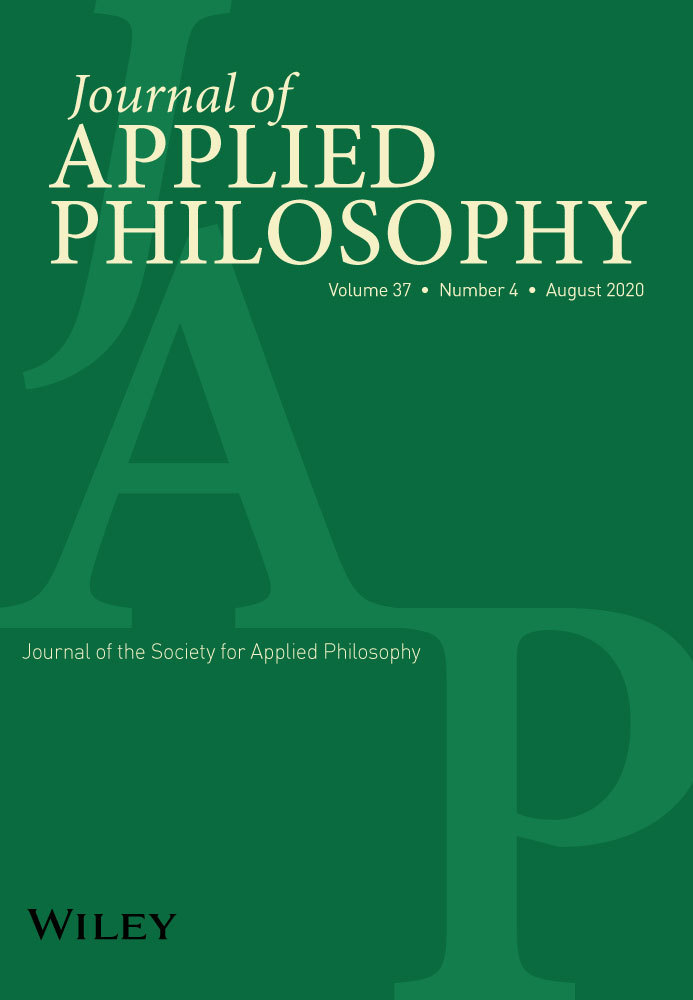
Respect, Religion, and Feminism: Comments on Lori Watson and Christie Hartley, Equal Citizenship and Public Reason: A Feminist Political Liberalism is published in Journal of Applied Philosophy September 2020. You can read the paper here.
Abstract: There is significant disagreement among feminists and liberals about the compatibility between the two doctrines. Political liberalism has come under particular criticism from feminists, who argue that its restricted form of equality is insufficient. In contrast, Lori Watson and Christie Hartley argue that political liberalism can and must be feminist. This article raises three areas of disagreement with Watson and Hartley’s incisive account of feminist political liberalism. First, it argues that an appeal to a comprehensive doctrine can be compatible with respecting others, if that appeal is to the value of equality. Second, it takes issue with Watson and Hartley’s defence of religious exemptions to equality law. Third, it argues that political liberalism can be compatible with feminism but that it is not itself adequately feminist. It concludes that political liberalism is not enough for feminists.
- Against Marriage, all posts on feminism, all posts on liberalism, all posts on marriage, feminism, liberalism, multiculturalism and religion, publications on marriage
Against Marriage: An Egalitarian Defence of the Marriage-Free State
Against Marriage was published by Oxford University Press in 2017, with a paperback in 2019. Read the book on Oxford Scholarship Online here.Winner of the APSA David Easton Award 2018.
Synopsis
Against Marriage is a radical argument for the abolition of state-recognised marriage. Clare Chambers argues that state-recognised marriage violates both equality and liberty, even when expanded to include same-sex couples. Instead Chambers proposes the marriage-free state: an egalitarian state in which religious or secular marriages are permitted but have no legal status.
Part I makes the case against marriage. Chambers investigates the critique of marriage that has developed within feminist and liberal theory. Feminists have long argued that marriage is a violation of equality since it is both sexist and heterosexist. Chambers endorses the feminist view and argues, in contrast to recent egalitarian pro-marriage movements, that same-sex marriage is not enough to make marriage equal. Chambers argues that state-recognised marriage is also problematic for liberalism, particularly political liberalism, since it imposes a controversial, hierarchical conception of the family that excludes many adults and children.
Part II sets out the case for the marriage-free state. Chambers critically assesses recent theories that attempt to make marriage egalitarian, either by replacing it with relationship contracts or by replacing it with alternative statuses such as civil union. She then sets out a new model for the legal regulation of personal relationships. In the marriage-free state regulation is based on relationship practices not relationship status, and these practices are regulated separately rather than as a bundle. The marriage-free state thus employs piecemeal, practice-based regulation. Finally, Chambers considers how the marriage-free state should respond to unequal religious marriage. The result is an inspiring egalitarian approach that fits the diversity of real relationships.
Reviews
“Clare Chambers has produced what will surely be for years to come the definitive argument for the abolitionist view of marriage. … [T]his is in my opinion a superb book. It is prodigiously scholarly, but at the same time wonderfully clear and accessible. The arguments are provocative and challenging throughout. The literature on this vitally important topic urgently needed a book-length defense of the abolitionist position. It is hard to imagine a book performing this necessary role better than Chambers’s Against Marriage.”
Ralph Wedgwood in Ethics
Against Marriage is “political philosophy at its most practical and readable.”
Andrew Harrop, General Secretary of the Fabian Society, in Fabian Review
“This is a distinct and important contribution to an increasingly crowded field of liberal political philosophy on marriage and the state and, perhaps most interestingly, to our understanding of the liberal project broadly. … Where other liberals seek more vigorously to balance competing demands of freedom and equality, or emphasize freedom, Chambers hews rigorously to an egalitarian position. You won’t find another book that does this so effectively or by way of such productive engagement with existing scholarship. Laying out the egalitarian case in such clear and compelling terms, Chambers highlights the challenges it presents to the liberal side of her liberal feminist equation. In so doing, Against Marriage leaves us wondering just how tenable the liberal feminist project is. … Chambers leads us to these questions by bringing us to the edge of the liberal feminist frontier. This alone would make Against Marriage a distinct and important contribution. But, of course, Chambers does more. She offers a compelling vision of why and how to move beyond marriage and points us in the direction of work that needs to be done. All with the grace and graciousness of an analytical philosopher running at full throttle.”
Tamara Metz in Political Theory
“Against Marriage makes an important contribution to the debate over the future of marriage within liberalism. It is clear and cogently argued and a pleasure to read. One of its virtues is its breadth; it makes arguments which address a range of liberal and feminist views and should be accessible to non-specialists. At the same time, it advances the leading edge of the specialist debate in provocative and intriguing ways.”
Elizabeth Brake in Mind
“Clare Chambers provides a clear, lucid and timely argument against state-recognized marriage based on the liberal principles of liberty and equality. … Throughout, she is masterful at anticipating and responding carefully to potential objections to her arguments and proposals. …. And her responses to those who might disagree with her proposals reveal a two-fold carefulness: as a philosopher, she is thoughtful, deliberate, precise, and meticulous; as a feminist, she is attentive, concerned, and compassionate — considering not only the philosophical justifications for her proposals but also their practical fall out for women and other vulnerable populations. … I highly recommend Chambers’ book as an important scholarly and pedagogical resource. It is beautifully crafted and makes an important contribution to the literature in liberal political theory and, more specifically, to the philosophical literature on marriage and family. … It was my distinct pleasure to read this book and be provoked by its arguments into a better understanding of both liberalism’s promise and its limitations with regard to its support of diverse forms of relationship.”
Shelley M. Park in Notre Dame Philosophical Reviews
“Chambers’ Against Marriage is a wonderful addition to a growing literature demanding that we think seriously about the institution of marriage and how it may have to be altered to meet the demands of justice and equity.”
Robert Scott Stewart in Metapsychology Online Reviews
-
How to Disagree on BBC Radio 4
Timandra Harkness interviewed me for the BBC Radio 4 series “How to Disagree: A Beginner’s Guide to Having Better Arguments”, episode 4. The topic of the discussion is moral disagreement, with particular reference to the topic of abortion.
The episode was broadcast on 16 August 2018 and you can listen to it here.
- all posts on culture and religion, all posts on liberalism, all posts on the body and beauty, liberalism, multiculturalism and religion, the body
Reasonable Disagreement and the Neutralist Dilemma
 Chambers, Clare, “Reasonable Disagreement and the Neutralist Dilemma: Abortion and circumcision in Matthew Kramer’s Liberalism with Excellence” in The American Journal of Jurisprudence (May 2018).
Chambers, Clare, “Reasonable Disagreement and the Neutralist Dilemma: Abortion and circumcision in Matthew Kramer’s Liberalism with Excellence” in The American Journal of Jurisprudence (May 2018).You can read the paper here.
Abstract: This paper starts by investigating the idea of reasonable disagreement. It then considers Matthew Kramer’s argument that there is no neutral solution available to the disagreement over abortion. The paper argues that Kramer’s account has wider application, and identifies a neutralist dilemma. The neutralist dilemma applies when, of two policy options available to the state, one is unreasonable. It follows that the state should enact only the reasonable policy. However, in a neutralist dilemma the fact of reasonable disagreement due to the burdens of judgment means that it is not possible for the state to act at all, whether legislating or not, without deviating from neutrality. The paper develops the concept of the neutralist dilemma and then applies it to another case discussed by Kramer: infant circumcision. The paper argues that the debate over infant circumcision can be framed as a neutralist dilemma, but that the most plausible resolution of the dilemma results in an argument in favor of the legal prohibition of the practice. This is a surprising result, since most liberal states do not restrict circumcision and since prohibition of circumcision might initially appear to be non-neutral or even illiberal; however it is consistent with the tenets of neutralist liberalism.
- Against Marriage, all posts on feminism, all posts on liberalism, all posts on marriage, media, read
Fabian Society on Against Marriage
 Andrew Harrop, General Secretary of the Fabian Society, reviewed Against Marriage in Fabian Review, May 2018. You can read the full review here.
Andrew Harrop, General Secretary of the Fabian Society, reviewed Against Marriage in Fabian Review, May 2018. You can read the full review here.“Marriage makes me uncomfortable, whether the reason is political, historical, cultural or aesthetic. No matter how many married couples I see living modern equal relationships, for me, the whole concept is tainted by its patriarchal past. But I say ‘for me’ with good reason, as I have dozens of friends and comrades who disagree. This is a fault-line issue that divides socialists and feminists amongst themselves. In Against Marriage, Clare Chambers makes the case for why egalitarians and liberals should reject marriage. It is political philosophy at its most practical and readable.”
-
Neutrality at University of Edinburgh
I presented my paper “Reasonable disagreement and the neutralist dilemma: Abortion and circumcision in Matthew Kramer’s Liberalism with Excellence” at the University of Edinburgh in March 2018. You can read their account of the session on the Just World Institute blog here.
-
Freedom & Equality: Essays on Liberalism and Feminism
My next book is in press with Oxford University Press.
Freedom & Equality investigates the contours of feminist liberalism: a philosophical approach that is appealing but elusive. Its hallmark is a liberalism that prioritises equality and individual autonomy, while offering a rigorous critique of using individuals’ choices as the measure of justice.
Liberalism without feminism prioritises individual choice, a strategy that has played a crucial role in the liberal defence of freedom against authoritarianism and conformity. However, as feminism shows, relying on individual choice is insufficient to render an outcome just, because people often choose things that harm or disadvantage themselves. From beauty norms to the gendered division of labour, from marriage to religion, women and men choose to arrange their lives in ways that perpetuate inequality. Often, these choices are made in response to social norms, including unjust, unequal, or harmful norms. It follows that relying on individual choice as a measure of justice actually leaves unjust social structures intact. Any defender of autonomy and equality must be prepared to criticise individuals’ choices while prioritising individual choosers.
The essays in this collection cover a wide range of issues fundamental to liberalism, to feminism, and to their intersection. They explore the foundational philosophical concepts of choice, equality of opportunity, ideology, and the state. And they engage directly with key political controversies, including women’s sport, the state recognition of gender, the regulation of cosmetic and cultural surgeries, and state action to secure equality in the family.
Freedom & Equality shows that feminist liberalism is both possible and necessary. It is possible because the two doctrines of feminism and liberalism are compatible, their fundamental values of freedom and equality aligned. But feminism is necessary because liberalism has shown that it is simply not up to the task of securing gender equality and women’s liberation alone.
-
Freedom and Autonomy Conference
-
The Limitations of Contract: Regulating Personal Relationships in the Marriage-Free State
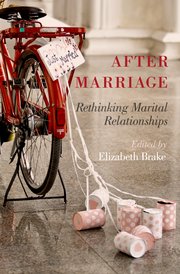 Many theorists defend relationship contracts. Some argue that enforceable relationship contracts should be available alongside existing or reformed state-recognised marriage, and available to either married or unmarried couples. Other theorists argue that relationship contracts are the best sort of legal regulation to replace marriage. It is this latter question that is the subject of this chapter. The chapter contrasts contract and directive models of regulation, and notes that contract appears more compatible with liberty than does directive. However this appearance is illusory since contracts can undermine liberty, directives can enhance liberty, and even a contract regime requires default directives. Moreover, there are various problems with the enforcement of relationship contracts. Specific performance is rarely appropriate in the relationship context. The alternative, fault-based compensatory alimony, risks causing injustice to vulnerable parties such as those who take on caring responsibilities (usually women) and children. Relational contract theory attempts to deal with some of these problems but has its own limitations. The chapter concludes that contract is not the best replacement for marriage.
Many theorists defend relationship contracts. Some argue that enforceable relationship contracts should be available alongside existing or reformed state-recognised marriage, and available to either married or unmarried couples. Other theorists argue that relationship contracts are the best sort of legal regulation to replace marriage. It is this latter question that is the subject of this chapter. The chapter contrasts contract and directive models of regulation, and notes that contract appears more compatible with liberty than does directive. However this appearance is illusory since contracts can undermine liberty, directives can enhance liberty, and even a contract regime requires default directives. Moreover, there are various problems with the enforcement of relationship contracts. Specific performance is rarely appropriate in the relationship context. The alternative, fault-based compensatory alimony, risks causing injustice to vulnerable parties such as those who take on caring responsibilities (usually women) and children. Relational contract theory attempts to deal with some of these problems but has its own limitations. The chapter concludes that contract is not the best replacement for marriage.Reviewers’ comments:
The book is “strenuously avant-garde”. The New York Times (5th April 2016).
Chambers’ chapter is “sobering and refreshing”. Notre Dame Philosophical Reviews (2nd May 2016).
Chambers, “one of the best-known advocates” of the claim that marriage should not be recognised by the state, contributes a “nuanced and lucid” chapter that is “among the most interesting contributions in the volume.” Hypatia (2017)
You can read more about the book here.
-
Feminism and Liberalism
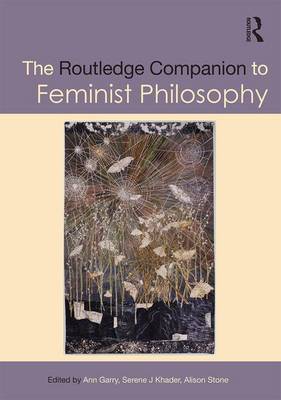 In Routledge Companion to Feminist Philosophy, edited by Serene Khader, Ann Gary, and Alison Stone (Routledge, 2017).
In Routledge Companion to Feminist Philosophy, edited by Serene Khader, Ann Gary, and Alison Stone (Routledge, 2017).For some feminists liberalism is little more than patriarchy in disguise; for others, it is the framework for securing justice. Feminism, like all other positions in political philosophy, is a range of views rather than a single determinate viewpoint. One aspect of this range is that feminism includes both academics and activists, for whom the term ‘liberalism’ can signify rather different things; after all, liberalism is not one single thing either.
In this chapter I start by considering feminist criticisms of liberalism. I discuss two aspects of feminist critique: first, academic feminist critiques of non-feminist liberal philosophy; second, activist feminist critiques of what is variously called “choice feminism”, “third-wave feminism”, or simply “liberal feminism”.
I then move to those feminists who endorse liberalism and argue that a suitably modified liberalism offers the best path to gender equality. This position, “feminist liberalism,” is mostly found in contemporary Anglo-American political philosophy. Feminist liberals understand liberalism as a commitment to substantive, demanding principles of justice based on freedom and equality. Included in this section are those feminist approaches that combine radical feminism’s insights about the limitations of individual choice with feminist liberalism’s commitment to autonomy, equality, and justice.
See more about the book here.
-
BBC Radio 4 Broadcasting House
 I took part in a “remunerations panel”, discussing the philosophy behind how much people should be paid. The item was broadcast live on 7th June 2015. You can listen here – the item starts 14 minutes in.
I took part in a “remunerations panel”, discussing the philosophy behind how much people should be paid. The item was broadcast live on 7th June 2015. You can listen here – the item starts 14 minutes in. - all posts on culture and religion, all posts on liberalism, articles, liberalism, multiculturalism and religion, read
Liberal Views
-
The Philosophers’ Magazine

My piece “Liberal views” discusses different models of separation of church and state, as they are conceptualised philosophically and as they apply to actual polities. The article is here.
-
New Directions in Public Reason (2014)
I participated in this excellent event at the University of Birmingham. Details here.
-
Fabiana
 My work was cited in Fabiana, the magazine of the Fabian Society Women’s Network, issue 2 p. 7 (Winter 2012). Print and on-line, on-line available here.
My work was cited in Fabiana, the magazine of the Fabian Society Women’s Network, issue 2 p. 7 (Winter 2012). Print and on-line, on-line available here. -
www.opendemocracy.net
 My chapter on “Feminism” from the Oxford Handbook of Political Ideologies was cited in Rahila Gupta, “Has neoliberalism knocked feminism sideways?” 4th January 2012. Available here.
My chapter on “Feminism” from the Oxford Handbook of Political Ideologies was cited in Rahila Gupta, “Has neoliberalism knocked feminism sideways?” 4th January 2012. Available here. -
Philosophy Bites
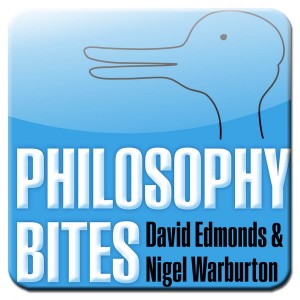 My Philosophy Bites podcast on “Liberalism and Intervention”, an interview with Nigel Warburton produced by David Edmonds, is part of the special series “Multiculturalism Bites”, available here.
My Philosophy Bites podcast on “Liberalism and Intervention”, an interview with Nigel Warburton produced by David Edmonds, is part of the special series “Multiculturalism Bites”, available here. -
Teach Yourself Political Philosophy: A Complete Introduction
Clare Chambers and Phil Parvin (Hodder & Stoughton, 2012)
Written by two leading experts, this book can help you whether you are studying for an important exam or simply want to improve your knowledge.
The first half of the book introduces the reader to the essential concepts within political philosophy, such as freedom, equality, power, democracy, rights, and the state.
The second half of the book looks at how influential political philosophers, such as Plato, Rawls and Mill, have used these fundamental concepts in order to tackle a range of normative political questions such as whether the state has a responsibility to alleviate inequalities, and what role liberal and democratic states should play in regulating the cultural or religious beliefs of citizens.
Reviews
‘Phil Parvin and Clare Chambers have produced a state of the art textbook, which provides students with a comprehensive and bang up-to-date introduction to contemporary political philosophy. Topics are introduced in a clear and eminently readable fashion, using accessible real world examples whilst drawing on sophisticated scholarly literature. There is no comparable book which covers such a wide range of topics in such a student-friendly manner.’(Dr Daniel Butt, Lecturer in Political Theory, University of Bristol)
‘A lively, accessible and engaging read. Comprehensive and well organized, it provides an updated account of key concepts in contemporary political philosophy, and highlights their relevance to political life in the 21st century. A valuable book for anyone taking their first steps in the world of political philosophy, or anyone who seeks to understand the normative challenges faced by our society today.’
(Dr Avia Pasternak, Lecturer in Political Theory, University of Essex)
‘Written in a clear and accessible style, it is an engaging introduction for those who are new to political philosophy and wish to think through some of its most important questions. In addition to offering outlines of key arguments, each chapter also contains a summary of main concepts, self-test questions, a wonderful selection of quotations and some attention-grabbing ‘nuggets”
(Dr Zosia Stemplowska, University Lecturer in Political Theory, University of Oxford)
- all posts on feminism, all posts on liberalism, all posts on marriage, chapters, feminism, liberalism, publications on marriage
“The Family as a Basic Institution”: A Feminist Analysis of the Basic Structure as Subject
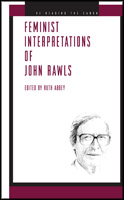 in Ruth Abbey (ed.), Feminist Interpretations of Rawls (Penn State Press, 2013).
in Ruth Abbey (ed.), Feminist Interpretations of Rawls (Penn State Press, 2013).In Section 50 of Justice as Fairness: A Restatement, titled “The Family as a Basic Institution”, John Rawls replies to Susan Moller Okin’s feminist critique of A Theory of Justice. The question of how Rawlsian justice might secure gender equality has been discussed by many feminists, most notably by Okin. However, as I argue in this chapter, the Rawls-Okin debate raises more questions than it answers. Okin criticises Rawls for failing to apply his theory adequately to the family: she criticises not Rawls’s approach in general, but his attitude to the family in particular. Okin argues that a consistent application of Rawlsian theory would secure gender justice, but that Rawls is remiss in refusing such consistency. In fact, as I show, Rawls’s remarks on the family reveal a more fundamental problem with Rawlsian theory than Okin allows. It is not that Rawls fails to apply his theory correctly to the family, but rather that the specific case of the family illustrates deep-seated difficulties with Rawlsian justice as a whole.
The problem, to give an outline, is that Rawls’s ambiguous remarks on the family are comprehensible only at the expense of his fundamental claim that there is something distinctive about the application of justice to the basic structure. Okin criticises Rawls for failing to make good on the fact that the family is part of the basic structure. If he did make good, Okin claims, he would see that the principles of justice must apply to the family in a much more extensive way than he actually allows. As I show, however, the family is one illustration of the fact that how the principles of justice apply to an institution does not depend on whether that institution is part of the basic structure. This is a problem for Rawls because the distinctiveness of the basic structure is a crucial part of the political liberalism which, by the end of his work, has become essential to the Rawlsian project.
In this chapter I first outline Okin’s critique of Rawls in more detail, and provide a valid formalisation of her argument against Rawls. I then examine the main premises of her argument and look for evidence to support Okin’s interpretation of Rawls. I conclude that Okin’s interpretation is flawed but nonetheless highlights problems with Rawls’s claim that the basic structure is the subject of justice. I then consider and reject the argument that Rawls’s theory is consistent according to what I call the “whole structure view”: that the principles of justice apply to the basic structure considered as a whole. Finally, I consider G.A. Cohen’s argument that the basic structure distinction is problematic. I agree with Cohen’s criticism of the distinction, but suggest that Cohen is wrong in situating the problem with the issue of coercion. I conclude that Rawls’s position on justice in the family is at odds with his claim that the basic structure is uniquely the subject of justice.
You can see more about the book here.
- all posts on culture and religion, all posts on feminism, all posts on liberalism, chapters, feminism, liberalism
What kind of dialogue do we need? Gender, deliberative democracy and comprehensive values
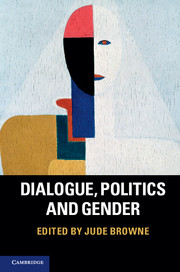 (with Phil Parvin) in Jude Browne (ed.) Dialogue, Politics and Gender (Cambridge University Press, 2013).
(with Phil Parvin) in Jude Browne (ed.) Dialogue, Politics and Gender (Cambridge University Press, 2013).This paper claims that a focus on gender as a source of controversy, and on feminism as a theoretical and practical approach, prompts a rethinking of the role of dialogue away from the liberal constitutionalist focus of deliberative democracy and towards a more fluid, reflexive approach.
-
Each outcome is another opportunity
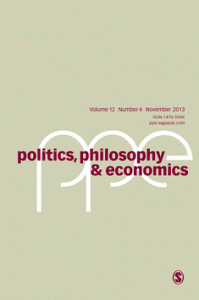 Politics, Philosophy and Economics (PPE) Vol. 8 No. 4 (2009).
Politics, Philosophy and Economics (PPE) Vol. 8 No. 4 (2009).This paper introduces the concept of a Moment of Equal Opportunity (MEO): a point in an individual’s life at which equal opportunity must be applied and after which it need not. The concept of equal opportunity takes many forms, and not all employ an MEO. However, the more egalitarian a theory of equal opportunity is, the more likely it is to use an MEO. The paper discusses various theories of equal opportunity and argues that those that employ an MEO are problematic. Unjust inequalities, those that motivate the use of equal opportunity, occur throughout peoples’ lives and thus go unrectified after an MEO. However, it is not possible to abandon the MEO approach and apply more egalitarian versions of equal opportunity throughout a person’s life since doing so entails problems of epistemology, efficiency, incentives and counter-intuitive results. The paper thus argues that liberal egalitarian theories of equality of opportunity are inconsistent if they support an MEO and unrealisable if they do not.
You can read this paper here.
-
Coercive redistribution and public agreement: re-evaluating the libertarian challenge of charity
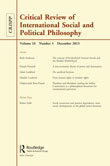 (with Phil Parvin) in Matt Matravers and Lukas Meyer (eds.), Democracy, Equality, and Justice (Routledge and special issue of Critical Review of International Social and Political Philosophy (CRISPP) Vol. 13 No. 1 (2010).
(with Phil Parvin) in Matt Matravers and Lukas Meyer (eds.), Democracy, Equality, and Justice (Routledge and special issue of Critical Review of International Social and Political Philosophy (CRISPP) Vol. 13 No. 1 (2010).
In this article, we evaluate the capacity of liberal egalitarianism to rebut what we call the libertarian challenge of charity. This challenge states that coercive redistributive taxation is neither needed nor justified, since those who endorse redistribution can give charitably, and those who do not endorse redistribution cannot justifiably be coerced. We argue that contemporary developments in liberal political thought render liberalism more vulnerable to this libertarian challenge.
Many liberals have, in recent years, sought to recast liberalism such that it is more hospitable to cultural, religious, and ethnic diversity. This move has resulted in increased support for the claim that liberalism should be understood as a political rather than comprehensive doctrine, and that liberal institutions should draw their legitimacy from agreements made among members of an appropriately conceived deliberative community, rather than from controversial liberal principles like individual autonomy. We argue that, while this move may indeed make liberalism more compatible with cultural diversity, it also makes it more vulnerable to the libertarian challenge of charity. Not all versions of liberalism are troubled by the challenge, but those that are troubled by it are increasingly dominant.
We also discuss G.A. Cohen’s claim that liberal equality requires an ‘egalitarian ethos’ and argue that, if Cohen is right, it is difficult to see how there can be an adequate response to the libertarian challenge of charity. In general, our argument can be summarised as follows: the more that liberalism is concerned accurately to model the actual democratic wishes and motivations of the people it governs, the less it is able to justify coercively imposing redistributive principles of justice.
You can read a copy of this paper here.
- all posts on culture and religion, all posts on feminism, all posts on liberalism, all posts on social construction, all posts on the body and beauty, beauty, feminism, liberalism, multiculturalism and religion, Sex, Culture, and Justice, social construction, the body
Sex, Culture, and Justice: The Limits of Choice
Sex, Culture, and Justice: The Limits of Choice was published in hardback and paperback by Penn State University Press in 2008. An e-book is also available. You can buy all versions here.
Autonomy is fundamental to liberalism. But autonomous individuals often choose to do things that harm themselves or undermine their equality. In particular, women often choose to participate in practices of sexual inequality-cosmetic surgery, gendered patterns of work and childcare, makeup, restrictive clothing, or the sexual subordination required by membership in certain religious groups. In this book, Clare Chambers argues that this predicament poses a fundamental challenge to many existing liberal and multicultural theories that dominate contemporary political philosophy. Chambers argues that a theory of justice cannot ignore the influence of culture and the role it plays in shaping choices. If cultures shape choices, it is problematic to use those choices as the measure of the justice of the culture. Drawing upon feminist critiques of gender inequality and poststructuralist theories of social construction, she argues that we should accept some of the multicultural claims about the importance of culture in shaping our actions and identities, but that we should reach the opposite normative conclusion to that of multiculturalists and many liberals. Rather than using the idea of social construction to justify cultural respect or protection, we should use it to ground a critical stance toward cultural norms. The book presents radical proposals for state action to promote sexual and cultural justice.
Amazon UK: http://www.amazon.co.uk/Sex-Culture-Justice-Limits-ebook/dp/B001UE6M1G/
Amazon US: http://www.amazon.com/Sex-Culture-Justice-Limits-ebook/dp/B001UE6M1G/
Reviews
“[A]n interesting, important, wide-ranging and well-argued book that contains a controversial proposal that will, no doubt, be widely debated.”
—Times Higher Education“[A]n important book. … Very few first-rate analytical thinkers … engage with social theorists: Chambers is a notable exception, and if only for that reason, her contribution should serve as a model for any endeavour of this kind. … Moreover, its strength lies not merely in the author’s mastery of two disparate intellectual traditions, but also in its cogent and provocative defence of a number of proposals.“
—Philosophy“[E]xtremely successful. … Testament to her scholarly rigour, Chambers skilfully avoids alienating either side of the academic divide [between analytical and continental philosophy]; achieving her stated aim, she undermines the foundations upon which such divides are rooted. … This opportune and tightly argued work reveals the extent to which equality and justice cannot be guaranteed by a political liberalism which venerates autonomy to the exclusion of other important values. Setting itself apart from other work in its field, this book forms, albeit on its own terms, part of the solution.”
—Feminist Theory“Chambers’ work makes a highly valuable contribution to contemporary philosophical debates. … Chambers’ work represents a great advance in attempting to forge a path between two positions which are so often considered to be diametrically opposed. The project … is a vital one. … [T]he value of the theoretical contribution, both to liberal and feminist philosophy, is indisputable.”
—Res Publica“Her interwoven arguments … are complex, meticulous and inventive. … [T]here is real potential here for this book to alter mainstream liberal thinking.”
—Feminist Review“An incisive, well-written book with a sustained, original argument.”
—Ruth Abbey, University of Notre Dame“The book contributes significantly to the literature of liberalism, autonomy, and feminism.”
—Ann Cudd, University of Kansas“Chambers’ refreshing approach has the potential to expand the scope of conventional liberal theory by showing how liberals can (and should) directly meet the challenge of postmodern approaches and by demonstrating that feminist contributions are the well from which most innovations in liberalism are drawn.”
—Avigail Eisenberg, University of Victoria -
Torture as an evil: Response to Claudia Card
 Criminal Law and Philosophy Vol. 2 No. 1 (January 2008).
Criminal Law and Philosophy Vol. 2 No. 1 (January 2008).This article argues that, while Claudia Card is right to reject proffered excuses for torture, her strategy for demonstrating that torture is an evil and thus inexcusable is problematic. You can read the paper here.
- all posts on culture and religion, all posts on feminism, all posts on liberalism, all posts on social construction, all posts on the body and beauty, articles, beauty, feminism, the body
Are breast implants better than female genital mutilation? Autonomy, gender equality and Nussbaum’s political liberalism
 Critical Review of International Social and Political Philosophy (CRISPP) Vol. 7 No. 3 (Autumn 2004).
Critical Review of International Social and Political Philosophy (CRISPP) Vol. 7 No. 3 (Autumn 2004).This paper outlines two forms of autonomy, and argues that political liberals such as Martha Nussbaum wrongly prioritise second-order autonomy. As a result, they cannot provide adequate criticism of unjust social norms. The two cases of breast implants and female genital mutilation are compared to illustrate this point.
